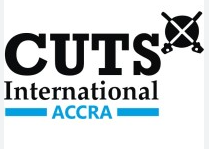Consumer rights advocacy group, CUTS International Accra, has criticised MultiChoice Ghana for failing to provide adequate notice before increasing its subscription fees by an average of 15 percent.
The price adjustment, set to take effect on April 1, 2025, was communicated to subscribers via SMS and email on March 24, giving them less than a week to prepare.
“It is generally considered fair practice to provide subscribers with at least one month’s notice of any price adjustments,” CUTS International stated in a communique.
“Providing timely and transparent communication around price changes is not only fair and reasonable but also helps to build trust and foster good customer relationships,” it added.
MultiChoice Ghana, which operates DStv, holds a dominant position in the country’s pay-TV market, largely due to its exclusive broadcasting rights for premium content such as the English Premier League and the UEFA Champions League.
Consumer advocates argue that this market strength comes with a heightened responsibility to ensure business practices do not unfairly disadvantage subscribers.
“In markets where competition is limited, there is a greater risk of practices that may be perceived as exploitative or unfair,” CUTS International noted.
The controversy echoes a similar case in Nigeria, where the Federal Competition and Consumer Protection Commission (FCCPC) found that MultiChoice Nigeria had raised prices without adequate notice. In response, the regulator required the company to provide a one-month free subscription as a remedial measure.
“This case sets a useful persuasive precedent and reinforces the principle that consumers should be given sufficient time to adjust to changes that affect their financial commitments,” CUTS International pointed out.
The think tank argues that Ghana’s weak consumer protection laws have enabled companies like MultiChoice to make pricing decisions with minimal oversight.
“This situation once again highlights the urgent need for Ghana to enact a comprehensive Consumer Protection and Competition Act. Such legislation would serve as a critical tool to empower consumers, promote fair market practices, and provide avenues for redress when necessary,” the organisation said.
Despite consumer concerns, no regulatory action has been taken against MultiChoice Ghana, leaving subscribers with little recourse other than to absorb the increased costs.
CUTS International hopes that raising the issue will contribute to broader discussions on strengthening consumer protections.
“We trust that these observations will contribute to ongoing conversations around strengthening consumer protection frameworks in Ghana,” the statement read.










